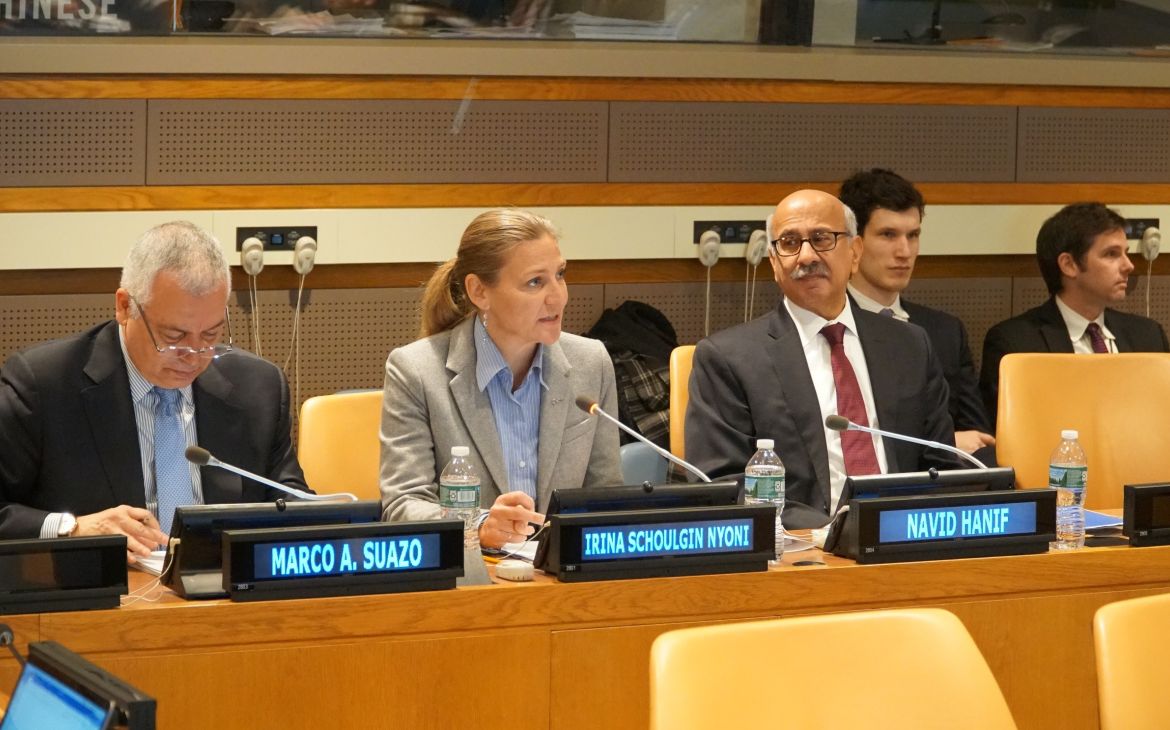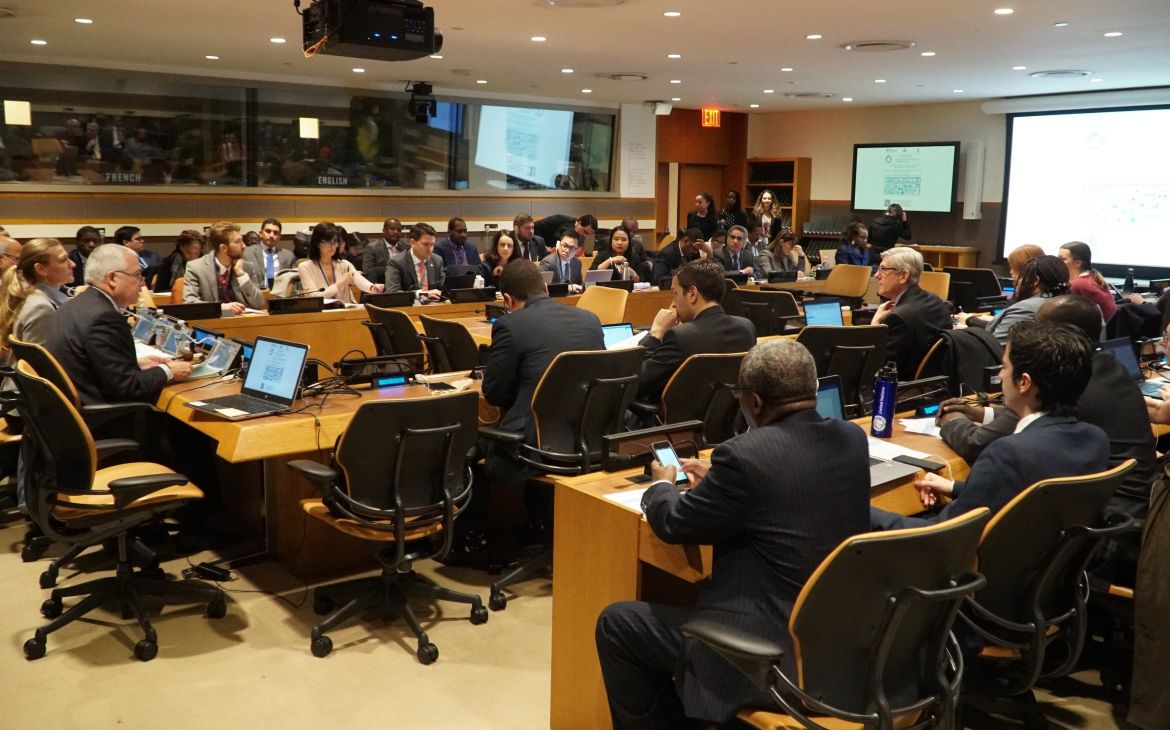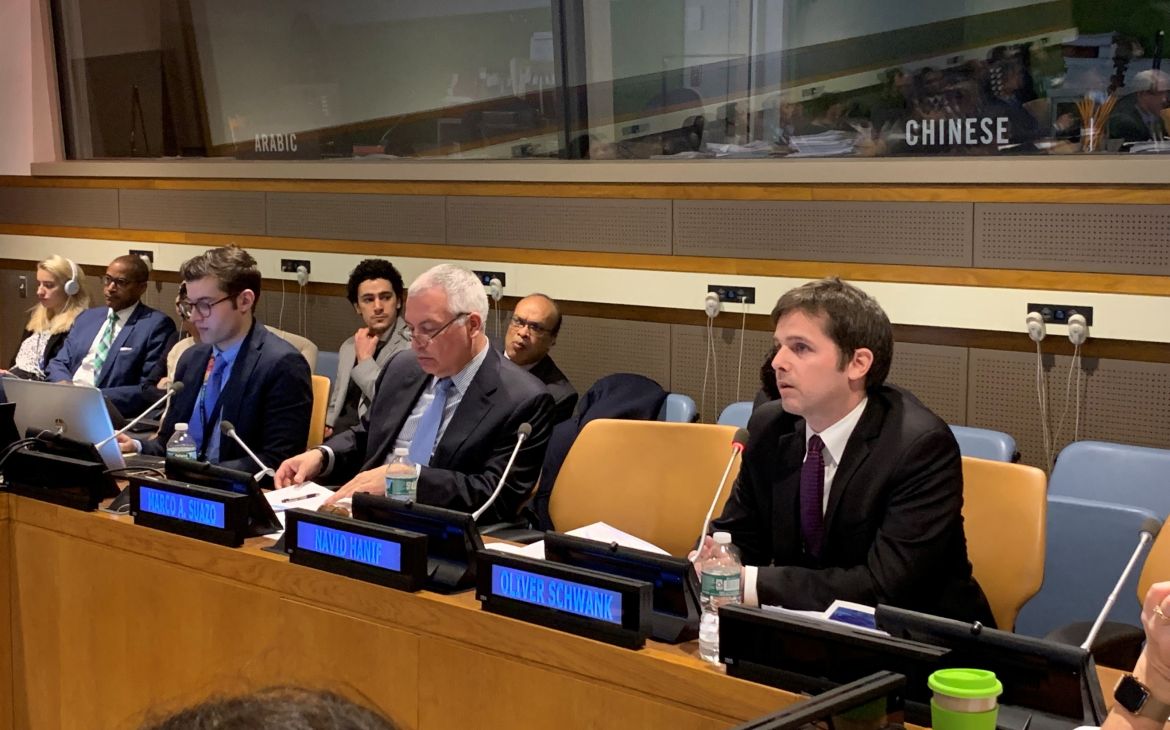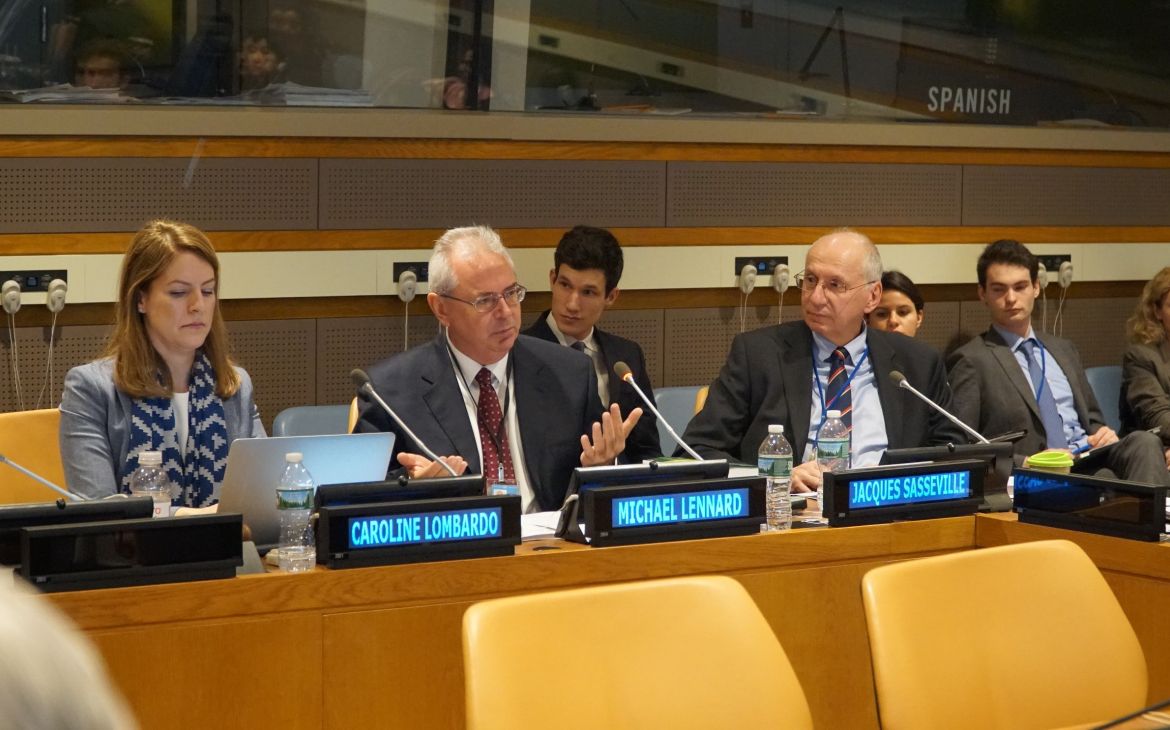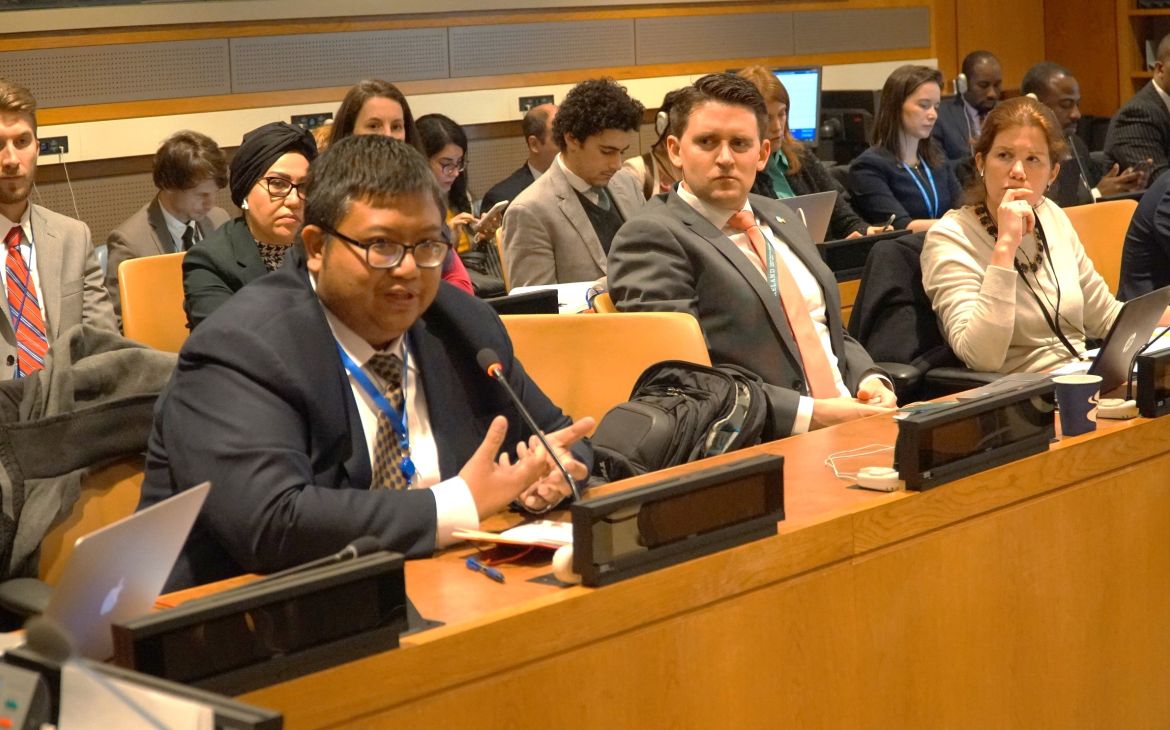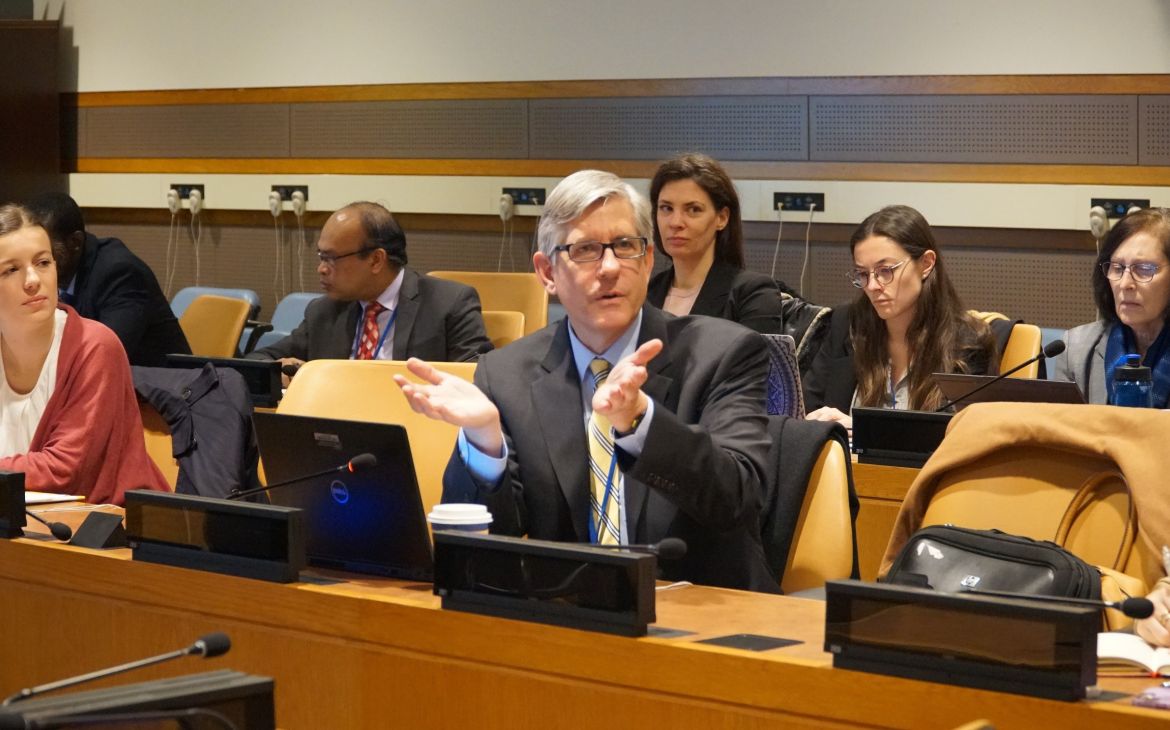5 February 2019, New York, U.S.A – The United Nations Institute of Training and Research (UNITAR) New York Office and the Financing for Sustainable Development Office (FSDO) of UNDESA have jointly hosted a one-day training workshop in preparation for the Finance for Development ECOSOC Forum. The event was hosted in the United Nations Headquarters in New York City.
The course consisted of six different sessions which covered a wide variety of topics relating to financing development, such as the Addis Ababa Action Agenda and other major outcomes in Financing for Development (FfD), current and emerging trends in financing for sustainable development, the global mechanisms that support the implementation of the 2030 and Addis Ababa Agendas, the SDG investment gap, and the upcoming 2019 ECOSOC Financing for Development Forum. This day-long event was sponsored by the Permanent Mission of Sweden under the programme “Leveling the Playing Field”.
The opening remarks were delivered by H.E. Ms. Irina Schoulgin Nyoni, Deputy Permanent Representative of Sweden to the United Nations. Mr. Marco A. Suazo, the Head-of-Office of UNITAR New York, delivered welcoming remarks and introduced Mr. Navid Hanif, Director of the Financing for Sustainable Development Office (FSDO) of the Department of Economic and Social Affairs (DESA).
Following the welcoming remarks, Mr. Navid commenced the session with an overview of the issue of Financing for Sustainable Development, the Financing for Development process and how it links to other major intergovernmental outcomes, particularly the 2030 Agenda. He provided the delegates with a historical snapshot of the major milestones in Financing for Development process. This included the intergovernmental conferences in Monterrey and Doha, as well as the Addis Ababa Action Agenda, agreed upon in 2015. The session introduced the action areas of the Addis Agenda, as well as to the work of the Inter-Agency Task Force on financing for sustainable in providing the main substantive input to the annual ECOSOC Forum on Financing for Development.
Mr. Oliver Schwank, Senior Economist of the Policy Analysis & Development Branch of the FSDO, discussed the of current trends and challenges for financing sustainable development and implementing the SDGs. The session featured a brief snapshot of recent analytical work of the United Nations, including from the Financing for Sustainable Development Report (FSDR). Mr. Schwank discussed ideas for action to advance the financing of sustainable development, including integrated national financing frameworks.
Session III featured three panelists: Ms. Caroline Lombardo, Mr. Michael Lennard, and Mr. Jacques Sasseville of the International Tax and Development Cooperation Branch of the FSDO. This session provided delegates with an inside view into two of the global mechanisms that support the implementation and follow-up of the 2030 and Addis Agendas. The panelists introduced the Development Cooperation Forum and the UN Committee of Experts on International Cooperation on Tax Matters, and briefly survey some of the key debates and developments on international tax policy and administration being carried forward in the Committee. They also provided a brief orientation of FSDO’s efforts to help countries strengthen domestic resource mobilization, by advancing a more integrated approach to UN policy guidance and capacity development in this area.
In the afternoon session, Mr. SUAZO gave warm welcoming remarks as delegates returned to the training, and introduced the next session’s speaker, Mr. Krishnan Sharma, Chief of the Strategic Engagement Unit in the Financing for Sustainable Development Office. Mr. Krishnan highlighted the significant gap between the actual and required investment to achieve the SDGs. He went on to elaborate on the actions undertaken by the FSDO, including in the context of the annual ECOSOC Financing for Development Forum and the SDG Investment Fair, held concurrently from 15 to 18 April 2019 as well as country SDG investment workshops, and engagement with relevant stakeholders, including the private sector.
The last session was presented by Mr. Huanyu Liu, Chief of the Policy Integration Unit in the Financing for Sustainable Development Office. The session highlighted the critical role of the annual ECOSOC Financing for Development Forum in accelerating action to finance sustainable development in 2019.
The orientation course provided participants with a better understanding of the scope and objectives of the normative frameworks for financing sustainable development. The panelists were able to clarify the linkages between the frameworks and the 2030 Agenda for Sustainable Development, as well as the institutional mechanisms in place to monitor progress in financing and the means of implementation of the Agenda. Participants have also gained an understanding of the policy recommendations that emanate from analytical and normative work conducted across a range of entities and processes and how these can feed into policy-making at the national and local levels. Finally, panel opportunities available for countries to identify and access a wide range of investment and financing potentially available for sustainable development.


